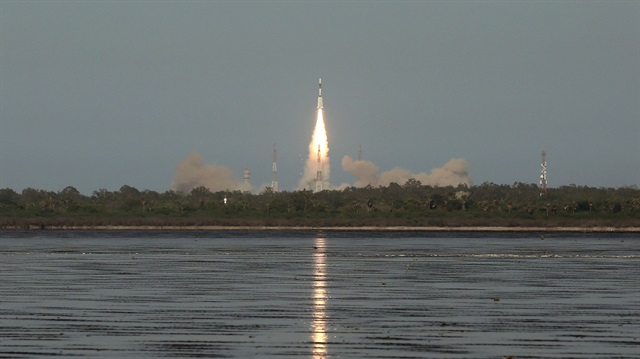
India launched a communication satellite using its most powerful rocket on Monday, improving its prospects of winning a bigger share of the more than $300 billion global space industry and its hopes of a manned mission.
The 13-storey high rocket, the Geosynchronous Satellite Launch Vehicle (GSLV) Mk III, or "Fat Boy", lifted off from the Sriharikota space centre in southern India at 5.28 p.m. (1158 GMT) in clear blue skies.
At 3,136 kg (6,914 lb) the GSAT-19 satellite is the heaviest India has attempted to put in orbit, the space agency said.
The United States, Russia, China, Japan and European Space Agency have the capability to launch satellites weighing more than three tonnes.
Prime Minister Narendra Modi congratulated the scientists behind the launch and said it took India closer to the next generation of launch capabilities.
"The nation is proud," he said in a Twitter post.
Modi's government has been promoting a home-grown space programme as a demonstration of low-cost technology and in February it launched 104 satellites in a single mission, most of them for foreign customers.
The Indian space agency has also considered a manned space missing involving sending astronauts into a low-earth orbit, but the programme has not yet been cleared by the government.
In 2014, scientists first flew the GSLV Mk III and checked the working of an unmanned crew module on the vehicle, suggesting that it would be the launch platform for a manned mission in future.
In May, India launched a communications satellite for its smaller neighbours to share, part of its efforts to build goodwill in the region.
A 2015 Space Foundation report pegged the global space industry at $323 billion. India’s share of global launch services industry is about 0.6 percent, government data shows.














